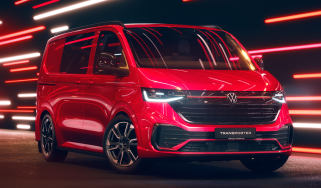Hyundai Elantra
If you're sceptical about the growth in diesel's popularity, then perhaps you should look to Hyundai for inspiration. The bold Korean firm is the first maker in the UK to offer a model with no petrol options at all, such is its faith in the appeal of oil-burners.
Today, opting for diesel rarely means making a compromise, but Hyundai's decision to drop petrol Elantras is a bold one. Thanks to a lack of refinement and disappointing economy, we must question the wisdom of the move when this diesel is outclassed by rivals. That said, you won't find a bigger or better-specced car for the cash.
If you're sceptical about the growth in diesel's popularity, then perhaps you should look to Hyundai for inspiration. The bold Korean firm is the first maker in the UK to offer a model with no petrol options at all, such is its faith in the appeal of oil-burners.
As of this month, the Elantra line-up is stripped to only one variant - the CRTD CDX, which uses a 111bhp 2.0-litre common-rail engine shared with the Trajet and Santa Fe. It offers Ford Mondeo-sized accommodation for the price of a diesel-powered Fiesta LX.
As you might expect, the Elantra isn't the last word in desirability, but at £10,995 it's worthy of a closer look - especially when you examine the spec sheet. Our car had digital climate control, an excellent CD player, alloy wheels, full leather trim and a styling kit - all included in the basic asking price.
That makes it tremendous value for money, although we're not sure about the wisdom of including a daft Mitsubishi Evo-style boot spoiler. The unconvincing fake wood in the cabin is a little off-putting, too. Those criticisms aside, there's no denying that you get plenty of car for the cash with the Elantra. But does such fine value for money mean you have to make compromises on the driving front?
If you're searching for comfortable, spacious, nonsense-free family motoring, then no - it's perfectly up to the job. But if you want a pleasurable driving experience, the Elantra falls at the first hurdle. The engine might be a common-rail unit, but it is much louder than most of its contemporaries, both at idle and when the car is on the move.
Performance is adequate and the five-speed manual gearbox light and precise, but the handling is distinctly average. The car feels very nose-heavy if it's cornered hard, while the power-steering is too sensitive at speed.
Neither are we convinced by Hyundai's claimed combined economy figures of 44mpg. Over five days of mixed driving, the best figure we achieved was a mere 33mpg - and that was on a gentle country route. Admittedly, this is likely to improve as the engine loosens up, but it still appeared poor compared to other similar-sized diesels.
The Elantra is fantastic value, make no mistake. But we can't help thinking that a petrol stablemate would broaden the appeal of the model range.



